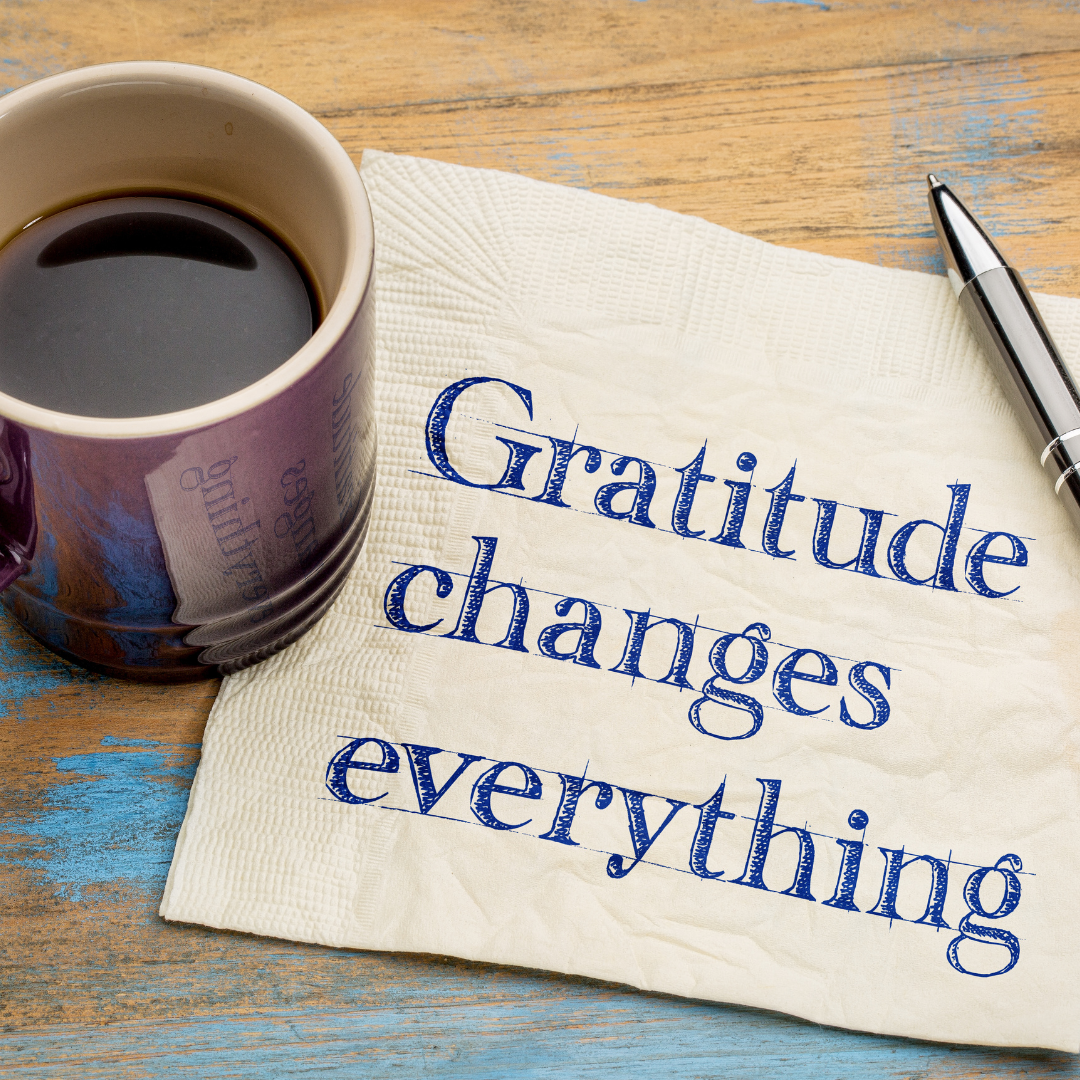Research supports that grateful people are more attentive, determined, energetic, enthusiastic, helpful, joyful and optimistic, when compared to those who are not. Gratefulness is also strongly related to what psychologists call a “sense of coherence,†which refers to your belief that life is manageable, meaningful, and understandable.
The reason that gratitude has such a powerful and lasting effect on your well-being is that it contributes to your ability to reframe difficult experiences in a positive way. Gratitude is also a strength greatly associated with life satisfaction.
Here are some ways to develop your attitude of gratitude:
- Challenge yourself to find three things every day that you’re grateful for. They don’t have to be big things! You can be thankful for that cup of coffee, opportunities, family, health, a beautiful view, a good hair day, or a good laugh, to name a few.
- Write a thank you card. The card can be to God, the universe, life, luck or whatever you believe in!
- Find one thing with each of your 5 senses to be grateful for (i.e., something you see, smell, taste, feel, hear). Keep a journal and start a list, you may be surprised about the many good things in your life that have been there all along.

READ MORE BLOGS
Empowered Parenting: Building Strong Connections Through Positive Reinforcement
By Alexander Iribar M.S. |
What is Reinforcement? First, let's talk about what reinforcement means. ...
Navigating Anxiety: Understanding, Coping, and Thriving
By Alexander Iribar M.S. |
In the hustle and bustle of our modern lives, anxiety ...
Temper Tantrums:
Why They Happen and How to Respond
By Katherine Moncrief M.S. |
Feeling guilty for losing your temper? You're not alone, many ...
Focus on the Journey, Not the Destination
By Dr. Richard Taborga Psy.D., LMHC |
Your mindset influences your response to life’s many challenges. People ...
Gratitude
By Dr. Richard Taborga Psy.D., LMHC |
Research supports that grateful people are more attentive, determined, energetic, ...
The Neuroscience of Journaling
By Dr. Richard Taborga Psy.D., LMHC |
Journaling is not just some hokey thing that therapists ask ...
Bad is Stronger Than Good
By Dr. Richard Taborga Psy.D., LMHC |
Studies suggest that positive and negative emotions are not equal. ...
Co-Parenting
By Dr. Richard Taborga Psy.D., LMHC |
Children thrive in a loving and understanding environment, with consistency ...
Obstacles as Opportunities
By Dr. Richard Taborga Psy.D., LMHC |
“When one door closes another door opens; but we so ...











